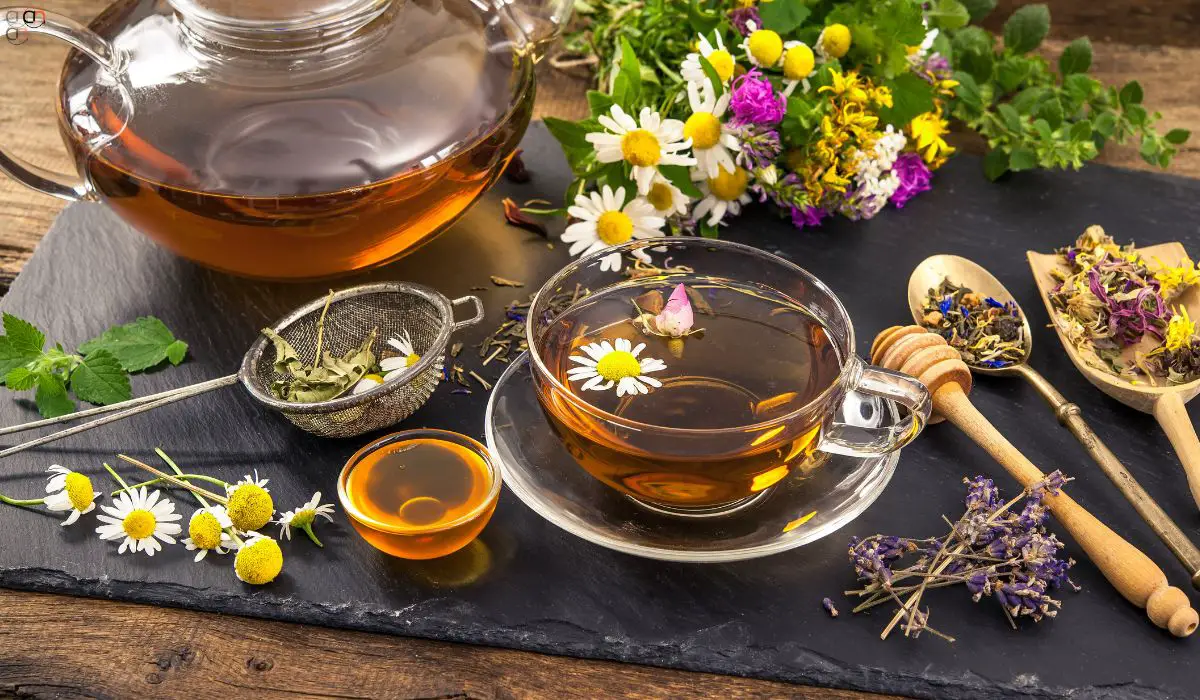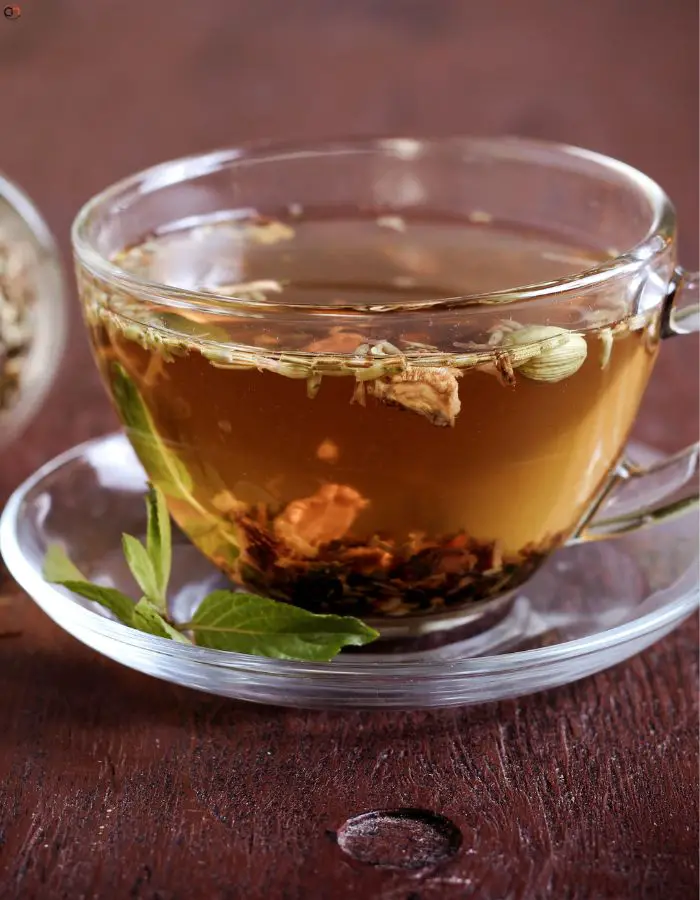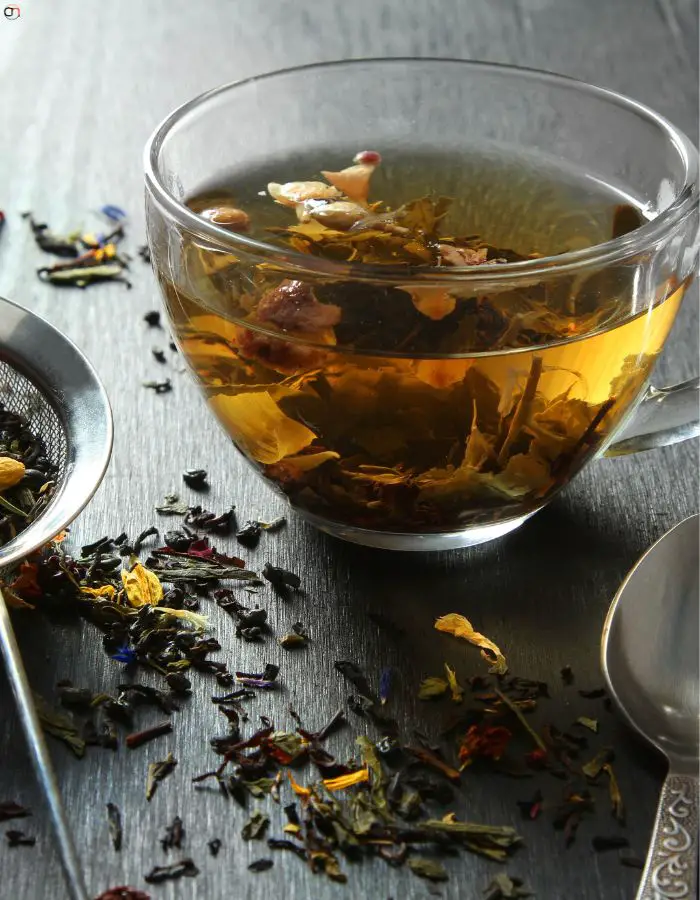Ayurvedic Herbal Tea Recipes

Ayurvedic herbal tea recipes have been used for centuries to promote balance, wellness, and vitality. Made with carefully selected herbs, spices, and botanicals, these teas support digestion, boost immunity, and calm the mind.
Each blend is crafted to align with different doshas—Vata, Pitta, and Kapha—helping to restore harmony within the body.
From warming ginger-infused teas to soothing chamomile and tulsi blends, these recipes offer a natural way to nourish and heal.
Explore the benefits of Ayurvedic herbal teas and discover the perfect blend for your well-being.
Ayurveda and Herbal Teas:
Ayurveda, an ancient Indian healing system, focuses on maintaining balance within the body through natural remedies. Herbal teas are an essential part of Ayurvedic practices, using carefully selected herbs and spices to support digestion, boost immunity, and promote relaxation. Each blend is designed to align with the body’s doshas—Vata, Pitta, and Kapha—helping to restore equilibrium and enhance well-being.
Key ingredients like ginger aid digestion, tulsi (holy basil) strengthens immunity, fennel cools the body, and turmeric reduces inflammation. These caffeine-free teas provide gentle yet effective healing, whether energizing in the morning or calming before bedtime. By incorporating Ayurvedic herbal teas into daily routines, the body and mind receive nourishment from nature’s finest ingredients. A simple cup of tea becomes a ritual for balance, vitality, and long-term health.
2 ayurvedic herbal tea recipes:
2 Ayurvedic Herbal Tea Recipes: Healing Blends for Balance and Wellness
1. Vata-Balancing Herbal Tea (Warming & Grounding)
This tea helps calm Vata dosha, which is associated with air and space elements. It soothes digestion, reduces anxiety, and provides warmth.
Ingredients:
- 1 cup water
- ½ teaspoon grated fresh ginger
- ¼ teaspoon cinnamon powder
- ¼ teaspoon licorice root (optional)
- 1 cardamom pod (crushed)
- 1 teaspoon honey (optional)
Instructions:
- In a small pot, bring the water to a gentle boil.
- Add ginger, cinnamon, licorice root, and crushed cardamom.
- Let the mixture simmer for 5 minutes to extract the flavors.
- Strain the tea into a cup and let it cool slightly.
- Stir in honey if desired, and enjoy while warm.
2. Pitta-Balancing Herbal Tea (Cooling & Soothing)
This tea is perfect for calming Pitta dosha, which is linked to fire and water elements. It helps reduce heat, acidity, and stress while promoting relaxation.
Ingredients:
- 1 cup water
- 1 teaspoon dried rose petals
- ½ teaspoon fennel seeds
- ½ teaspoon coriander seeds
- 4-5 fresh mint leaves (or ½ teaspoon dried mint)
Instructions:
- Heat water in a pot until it reaches a gentle boil.
- Add rose petals, fennel seeds, coriander seeds, and mint leaves.
- Cover and let the tea steep for 5-7 minutes.
- Strain into a cup and allow it to cool slightly before drinking.
- Enjoy this refreshing tea, especially in the afternoon or evening.
Both teas provide a natural way to balance your doshas while offering a soothing and flavorful experience.
Tips for Making Ayurvedic Herbal Teas:
Crafting Ayurvedic herbal teas is a simple yet powerful way to support overall wellness. By using the right ingredients and preparation methods, you can maximize their healing benefits. Here are some essential tips for making Ayurvedic herbal teas:
1. Choose Ingredients Based on Your Dosha
- Vata (Air & Space): Use warming spices like ginger, cinnamon, and cardamom.
- Pitta (Fire & Water): Opt for cooling herbs like rose petals, fennel, and coriander.
- Kapha (Earth & Water): Include stimulating ingredients like turmeric, black pepper, and clove.
2. Use Fresh, High-Quality Herbs and Spices
Organic and freshly ground spices provide the best flavor and potency. Whole spices can be lightly crushed to release their essential oils.
3. Avoid Over-Boiling the Ingredients
Delicate herbs like tulsi and mint should be steeped in hot water rather than boiled, while spices like ginger and cinnamon benefit from simmering for a few minutes.
4. Enhance Absorption with Complementary Ingredients
Adding black pepper to turmeric tea increases its bioavailability, and a teaspoon of honey can help balance strong flavors while providing additional health benefits.
5. Drink According to Your Body’s Needs
Morning teas should be energizing, while evening teas should focus on relaxation. Drinking herbal tea warm enhances its therapeutic effects and supports digestion.
Last Call:
Ayurvedic herbal teas offer a natural way to restore balance, boost immunity, and promote overall well-being. With carefully selected herbs and spices, these teas support digestion, relaxation, and energy levels based on your dosha type.
If you need a warming Vata tea, a cooling Pitta blend, or an energizing Kapha infusion, Ayurvedic teas provide a holistic approach to health.
CTA:
Ready to explore more Ayurvedic tea recipes and wellness tips? Join us on Pinterest for daily inspiration, step-by-step guides, and beautifully crafted herbal tea ideas.
Follow our boards and bring the healing power of Ayurveda into your daily routine!
Get Next: 10 Types Of Tea Flavours
FAQs:
Q. What is the best ayurvedic herbal tea recipes?
Some of the best recipes include Vata-balancing ginger cinnamon tea, Pitta-cooling rose and fennel tea, and Kapha-energizing turmeric spice tea.
Q. How do I choose the right Ayurvedic tea for my dosha?
Vata types benefit from warming spices, Pitta types need cooling herbs, and Kapha types thrive with stimulating ingredients.
Q. Can I drink Ayurvedic herbal teas daily?
Yes, these teas are caffeine-free and can be enjoyed daily to support digestion, immunity, and overall balance.
Q. What is the best time to drink Ayurvedic herbal tea?
Energizing teas are great in the morning, digestive teas after meals, and calming teas before bedtime.
Q. Where can I find more Ayurvedic tea recipes?
Follow us on Pinterest for a collection of Ayurvedic herbal tea recipes and wellness tips!







